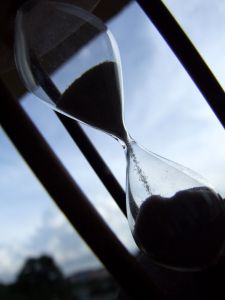 For me, the single best thing you can do to become more creative is to be wrong more often. Creative people are wrong all the time (look at Apple’s long string of failures). The goal is to create a safe place to be wrong, a way to be wrong without destroying yourself. – Seth Godin (Interview by The Happiness Project)
For me, the single best thing you can do to become more creative is to be wrong more often. Creative people are wrong all the time (look at Apple’s long string of failures). The goal is to create a safe place to be wrong, a way to be wrong without destroying yourself. – Seth Godin (Interview by The Happiness Project)
Seth’s words caught my attention because of two things: First, that creativity is my life, and Second, that I still am afraid of making mistakes and wasting everything I’ve ever accomplished in life.
The second part of Seth’s quote gives us hope however. We need to create a safe place to be wrong, “a way to be wrong without destroying yourself.”
But how can we do that? Just how do we ensure that we don’t destroy ourselves with our mistakes?
In my previous job as an auditor, I believe we have such a word for that – risk mitigation. Risks exist, whether we like it or not. Without risk, there can be no business venture, and no profit in return. What we need to do is to learn how to handle those risks, how to mitigate them as best we could so as not to let them hinder us from our goals.
Following are some of the things I’ve listed in order to help me mitigate those mistakes:
1. Have a backup plan. Have as much backup or alternative courses of action as you may need. When Plan A doesn’t succeed, you always have Plan B or C.
2. Be aware of the consequences of your actions. You must be able to calculate just how much you are willing to risk. If your plan doesn’t materialize, can you handle the results? What would it cost you? Can you afford the consequences?
3. Test small before you leap BIG. There are times when you don’t need to plunge your entire body just to test how hot the water is. Just dip your toes a little to get a feel of the situation you’ll be placing yourself into.
4. Get relevant trustworthy advice. You don’t need to experience everything just so you’d have the wisdom to accomplish something. There are lots of people who’ve been there before, people who can advice you and impart to you the wisdom they’ve earned through the years. Just ensure that you weigh also the advice given you and talk only to people you could trust.
5. Use your imagination. As J.K. Rowling mentioned in her speech at Harvard, “Imagination is not only the uniquely human capacity to envision that which is not… it is the power that enables us to empathise with humans whose experiences we have never shared.” Use your imagination and envision what you’ll be up against. Feel it as though everything’s already happening. Will the worst of it destroy you or those that matters most to you?
6. Ready your safety nets. In case all of your plans fail, how do you manage your fall? Will someone catch you? Will you have facilities to assist you? Do you know how you will manage the pain you will feel? How will you heal and for how long?
7. Strengthen yourself. There is no better preparation than striving to be the best person you could ever be. Gain wisdom. Develop patience and maturity. Have the courage to face your challenges, and the faith that no matter what happens, you will be able to rise up from the ashes like a phoenix. Make mistakes, but not the ones that could destroy who you are, because who you are is the only thing you’ll ever have left even if you lose everything along the way.
Know yourself. If you know you have much to learn, and much strength to develop, don’t engage in challenges that are beyond your capacity. Know the battles that fit your current strength but could teach you enough to grow stronger.
As you gain more confidence in who you are, only then can you face those challenges that will not destroy you, but will bring out the very best in you!
“Stay Hungry. Stay Foolish” – Steve Jobs
A very important note:
Nothing above is meant to encourage a person to “sin”. Sin harms both the victims of your wrongdoings and your own soul. To sin is to destroy yourself.
We should however avoid scrupulosity, the kind of thinking that forgets about God’s mercy for us.
God knows our weaknesses. He is ready to forgive us if we repent of our sins wholeheartedly and sincerely.
God does not want us to sin, but He gave us room to make mistakes and to learn from them. He allowed Adam and Eve to eat from the forbidden tree, but He sent His own Son so He could redeem us all.
“…we need to fall, and we need to be aware of it; for if we did not fall, we should not know how weak and wretched we are of ourselves, nor should we know our Maker’s marvellous love so fully…” – Julian of Norwich, Revelations of Divine Love(Translated by Elizabeth Spearing)




